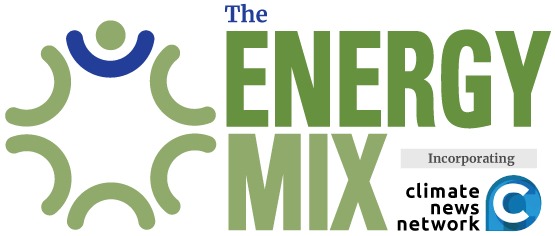Oil Companies Delay Emission Cuts Pending Results of Next Federal Election
With the 2025 federal election threatening to topple Canadian prime minister Justin Trudeau’s Liberal government, some oil and gas companies are delaying emissions reductions until they know the fate of the sector’s emissions cap.
The long-delayed cap, a Liberal framework that demands companies cut carbon emissions by up to 38% by 2030 from 2019 levels, stands to be thrown out the window if Pierre Poilievre’s Conservatives hold onto their current “commanding lead” in the polls and form the next federal government, reports Reuters.
Campaigning to stir up his base, Poilievre has also promised to “axe” Trudeau’s carbon pricing scheme, claiming it drives up inflation. The Conservative leader maintained that position after the Parliamentary Budget Officer’s (PBO) latest report on the matter found the majority of families receive a net return from the tax’s rebate check, after factoring in the increase in fuel expenses.
But Poilievre and the premiers of Alberta and Saskatchewan have stood firm in their criticism of the Trudeau government’s climate policies. Alberta has vowed to develop a “constitutional shield” against the emissions cap, and some small and medium-sized oil companies are “openly asking if the Liberals losing in the 2025 election would avert the need to accelerate emissions cuts,” Reuters writes.
“If we get to where we’re having to spend a lot of money to become way more draconian with our reductions, then we’re going to look at the federal election and go, ‘yeah, no, we’re not spending that money, no way.’ Because our fervent hope is (Trudeau) is gone,” said Jim Evaskevich, CEO of junior oil and gas company Yangarra Resources.
While Conservative politicians haven’t revealed much about how they would change things, “the smart betting is that they’ll likely change a lot,” writes Theo Argitis, managing director of the Compass Rose public affairs firm, in an analysis for the Financial Post.
“Poilievre will likely reverse economy-wide regulations set up by Trudeau for methane and clean electricity, and drop the oil and gas cap plan which—by the way—only kicks in after the next election.”
But Poilievre has not been clear about how much of Trudeau’s carbon pricing scheme he will eliminate. “Under a Poilievre government, the feds would defer to provinces as much as possible on things like output-based carbon pricing,” Argitis suggests.
The Tory leader has been campaigning on the claim that removing carbon pricing will help Canadians, but the tax is revenue-neutral and pays back out to residents through a quarterly rebate check. According to analyses of the system—including from the PBO—most families receive a net gain from rebates, even if the federal government has been inexplicably opaque about telling that story.
Small businesses are poised to see the heaviest impact as they are not exempt from paying the tax on fuel for operations—unlike large industrial companies, which only pay based on their emissions—but also do not receive a rebate check, CTV News reports.
Lower- and middle-income households are more likely to benefit from the carbon price, along with anyone who uses public transit or does not drive a car with an internal combustion engine. That means higher-income families are more likely to benefit from “axing the tax,” writes Globe and Mail columnist Tony Keller.
In Saskatchewan, which stopped collecting the federal carbon tax on heating bills January 1, some residents are concerned about receiving a lower rebate because of the new provincial policy. The province says its plan “will result in savings for approximately 98% of Saskatchewan families who were unfairly left out of the federal government’s decision to exempt the carbon tax on home heating oil.” But the PBO report found that “the largest net gain [from receiving the rebate] is in the lowest income quintile in Saskatchewan.”
The outcome of the province’s action is not clear, reports CBC News. But Brett Dolter, an assistant professor of economics at the University of Regina, said “a lot of households in Saskatchewan will actually be worse off because those rebates are going to be lower.”
Cover photo: GoodFreePhotos




